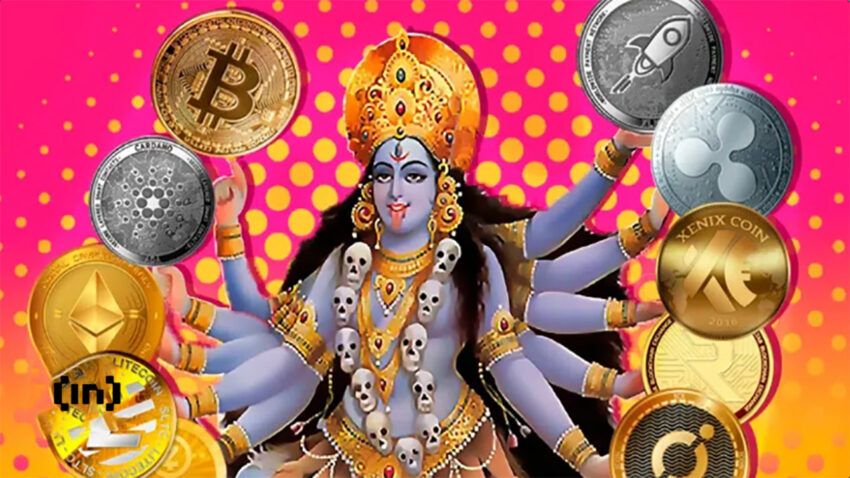After introducing a new taxation regime for virtual assets, India’s crypto industry braces for releasing the government’s 2023 budget.
Some top industry players spoke with BeInCrypto to share their expectations ahead of the budget announcement on Feb.1.
Crypto as a Regulated Asset Class in India
Rajagopal Menon, vice president of Indian crypto exchange WazirX, shared his expectations. In the upcoming session, he expects f Virtual Digital Assets (VDA) will be a regulated asset class.
The government in India has refrained from designating crypto as an asset class, despite taxing gains from its trade. Menon said, “VDAs should be classified as a suitable asset class, similar to securities, and the tax slabs and set-off benefits that apply to securities as an asset class should also apply to Crypto assets.”
The government of India proposed a 30% tax on the proceeds from selling cryptocurrencies last year without set-off provisions.
Menon argues, “Securities are classified as an asset class based on the risks associated with them, with products ranging from low-risk government bonds to high-risk derivatives. As a result, VDAs should be appropriately classified and regulated so that investors can understand the associated risks and invest accordingly.”
Subsequently, the administration introduced a source-based tax (TDS) in 2022 on payments made to transfer crypto at 1%. Menon asks for its ‘urgent’ abolition due to its crushing impact on capital. Founder Nischal Shetty also took to Twitter to call for “favourable policies” for the domestic sector.
Meanwhile, the central bank continues calling for a blanket crypto ban ahead of the budget release. Recently, RBI governor Shanktikanta Das argued that it is inappropriate to tag cryptocurrency as a financial asset. Das previously argued that crypto could play a part in the next financial crisis.
Budget 2023: Opportunity for Clarity
Sakina Arsiwala, the co-founder of the token-powered social network, Taki, takes the upcoming budget as an opportunity for clarity. She said, “We are hopeful that India will further strengthen its regulatory layout in the favour of developing the crypto industry, and we wish to have more streamlined and regulated measures for the private virtual digital assets (VDA).”
“Incentives from the government can stimulate various industries to invest in this developing vertical and create more job opportunities in India,” she added.
Crypto in India has been attempting to gain legitimacy for quite some time. The Cryptocurrency and Regulation of Official Digital Currency Bill of 2021 has yet to be passed in Parliament.
Vikram R Singh, Founder, and CEO of global solution provider Antier, believes that the Budget FY24 would decide the next phase of the Indian Web3 economy. Singh stated, “The answer lies in encouraging mass adoption of new-age digital technologies and attracting investments for startups in these domains by incentivizing innovation through tax concessions.”
Competitive Web3 Sector
The Indian crypto sector is struggling to clock in trade volumes, as seen in the pre-tax era. Ashish Singhal, CEO & Co-Founder of the CoinSwitch crypto exchange, said, “While last year’s union budget was about recognizing cryptos, this year should be around refinement.”
Meanwhile, Antier’s chief suggests that the government could promote the Indian digital ecosystem by launching more accelerator programs and web3 education.
Singh said,
“We expect the Budget to make the most of the decentralisation of technology by creating a regulatory framework that supports tech startups and extending grants for cross-disciplinary research so as to commercialise disruptive technologies, minus the associated risks.”
While the industry broadly welcomed the government’s move to bring crypto into the tax bracket, Singhal has more to add. The CoinSwitch chief said, “We support the government’s intention to trace and tax cryptos. However, it is essential to implement progressive taxation policies. The absence of comprehensive regulations, which are at the intersection of user protection, supports legitimate Indian startups, and serves the requirements of the regulators, makes the mechanism counter-productive.”
BeInCrypto quoted reports that Dubai and Singapore are now the most attractive destinations for Indian crypto developers and investors. Singhal argues, “India should incentivise users to stay within national jurisdiction by reducing the burden of taxes. If the TDS aims to establish a trail of crypto transactions, it can be achieved by a lower TDS rate of 0.1%.”
Calls for a lower tax regime, clarity on crypto oversight, and competitive policies are common themes within the industry. However, how far the government will go to provide legitimacy to the sector is to be seen.
Disclaimer
In adherence to the Trust Project guidelines, BeInCrypto is committed to unbiased, transparent reporting. This news article aims to provide accurate, timely information. However, readers are advised to verify facts independently and consult with a professional before making any decisions based on this content. Please note that our Terms and Conditions, Privacy Policy, and Disclaimers have been updated.


